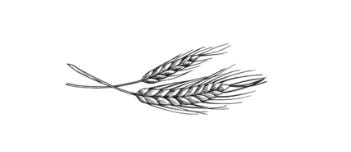Dear ones,
Last week, Peter and I gave a presentation at The Rhizome House called “The Radical History of Anarchism and Social Centers” which is something our collective dreamed up as a regularly occurring event to help give new-comers a sense of what the space is all about. As an educator who is a person both in radical spaces and on the internet, I am sad a lot about the sort of incoherent puzzle pieces that stand in as….movements? Identities? Social media brands? I’m not even sure how to identify what hurts my heart, but I can tell you it has something to do with my belief that history matters to any hope we have of a future. So many people know that capitalism is bad, the politicians are useless, and the Earth is in crisis, but if you don’t know that there are movements that have been thinking through and working against these same issues, it’s easy to grasp at disparate straws.
I recently wrote a sort of plea for people to take radical movements more seriously. This matters to me a great deal because I truly believe that actually radical ideas and action are the things that will keep the planet and all of us alive—happy, thriving even. I am continually disheartened when I see writers criticize capitalism but focus their energy exclusively on electoral and policy changes; I feel near-desperate to shout, There is another way! I get similarly frustrated when people take on radical ideas through people/brands/platforms/orgs that are actually harmful to the kind of change I think most people crave; knowing the history and context behind different radical (and liberal-dressed-as-radical) tendencies actually matters in these moments. (I know, for my regulars, this is probably boring to read because I write a version of this like once every few months! Forgive me!)
Our presentation focused a lot on the history of global anarchist (and anarchic) struggle because it shows how these ostensibly unreachable ideas have shown up in practice. We also talk a lot about the differences between anarchism and Marxism (state communism, specifically) because it was so fundamental to the origins of anarchist thought. This distinction didn’t used to feel important to me — to be honest, it felt a little bit like radical men LARPing as old-timey revolutionaries whenever I heard anyone talk about old anarchist/Marxist beef. But the longer I’m a part of movement work, the more I see how these differences do matter, especially when it comes to Marxist groups that feel justified in asserting authority (over protests, trans people, sex workers, etc.). In the past twenty years I’ve waffled between aligning myself more with anarchists or Marxists, and there’s a reason I’ve landed solidly and happily back to my original roots—against all domination, including the supposed dictatorship of the proletariat. To be clear: there are many Marxists who are not authoritarians (“Some of my best friends are non-authoritarian Marxists!”). But the rise of fascistic logics aren’t relegated only to the Right, and in my own research on the current political climate related to sex and gender issues, the voices speaking against trans people, sex workers, incarcerated people, and other “lumpen” “degenerates” are coming from communists with platforms. (Lumpen is a Marxist term referring to the part of the working-class Marx considered useless, and “degen” is now very online commie slang/literal Nazi rhetoric.)
If your eyes are glazing over because you’ve never been nerdy about these sort of niche radical splits, that’s totally cool! Not everyone needs to care about this stuff. What is important is that the more instances we have of collapse (collapse is definitely already here, it’s just impacting people to different degrees), the more we will see different entities try to convince people to follow their rulebook to survive— the liberals will promise green reform as long as you vote, the nonprofits will assure you they will fund solutions to the crisis if you just contribute a bit more to the executive director’s retirement fund, and the authoritarians (on both the Left and the Right) will promise revolution if you just toe the party line. The anarchists are never quite as visible because we’re not really in the game of recruitment, but we’ll be here, growing food and sharing it, getting people out of jail, and never demanding qualifiers to be worthy of care.
During the Q&A of the talk (which we didn’t record to protect people’s privacy), someone asked if I thought anarchist identity was important. “Not at all,” I said right away. I like calling myself an anarchist the way I like calling myself a punk, or a queer person — because it helps me find like-minded people with whom I can share community (and a good inside-joke meme). But there are perils to that kind of visible identity, including everything from increased state surveillance to seeming like a clubhouse that only certain cool kids can access. So although I like it for my social life, and for a framework I can turn to that helps me live a life aligned with my values, I don’t think everyone has to, or even should, “become an anarchist.” What I hope is that more and more people will be skeptical of prescriptive blueprint solutions from above, and instead have more faith in each other. What that looks like more concretely is hazy, because the “how” will be determined over and over again, through our relationships to small territories and the living things among them (read more from P on that here). It will be imagined through, in the words of adrienne maree brown: “critical connection more than critical mass.”
This is more work than following a rulebook, but I can’t think of work more worth doing.
***
Below! Reading/watching/listening recs, and a cute little gratitude list/peek into some cute personal happenings in my life lately. <3
And, just for fun, here’s a sneak peek of some upcoming essays: an All Fours-inspired piece reflecting on my own relationship to making dramatic life changes in pursuit of pleasure/joy/passion/change; thinking about the many combinations of sex and work (sex work, sex with coworkers, writing about sex when writing is your work, and so on); relatedly, I’m hoping to do more newsletters related to/revealing more of my book research (lots about feminism and sexual politics); something buzzy/take-y because honestly I love writing that kind of stuff, so I’m committing to bite when the next exciting-to-me cultural phenomenon iron is hot.
The summer (officially now, happy solstice!) sale is still on, just $30 for the whole year. <3
I love you.
love & solidarity,
raechel
Reading.
A beautiful, heartbreaking, and importantly nuanced reflection on harm reduction, health, and what it means to want to survive.
A deep-dive into QAnon-fueled conspiracy theories, impelledby reactionary desires to control gender and sexuality.
Nic Antoinette is doing some incredible work at the intersections of personal finance, social justice, and extraordinary transparency. This essay describes her decision to divest from the stock market and rethink retirement, and it’s absolutely worth reading. I will say that the piece may be challenging to folks who have money anxiety (I had to take some deep breaths throughout) because Nic’s completely open about numbers (and many of us will not have similar numbers that we’re working with). That said, if you’re in a place to think more critically about how to align your money with your values, her newsletter is the place to be (and her workshops & workbooks!).
This article says young women are fleeing organized religion (especially Christianity), which is interesting juxtaposed to the rise in tradwife content (recruitment?). I’ve always wondered if tradwife panic might be the thinkpiece industrial complex making mountains of molehills, but it’ll be good for me to sit with some data before drawing book conclusions about the phenomenon.
Ashley Reese reflects on potential motherhood, very present widowhood, fear, and always love.
Adriana Gallo wrote a really interesting essay on museum dining, postmodern food, and the social function of curated space; Alicia Kennedy turned it into a snazzy zine for The Desk Dispatch.
Watching.
Other than I Saw the TV Glow, we haven’t watched any movies the past couple of weeks. The apartment is extremely hot so everything is uncomfortable, including sitting on the couch for longer periods of time. The only television of note is that P wanted to finish The Boys. I watched the first season and a half before I decided it was simply too violent for me, but since it’s been on in the house, I kind of got back into it. It’s still extremely violent, but it also has some of the sharpest and most explicitly anti-US-government stances I’ve seen in mainstream media, which is pretty cool.
Listening.
I’m just going to let this tweet speak for me this week. :) :)
Joy & Attention.
a lovely birthday celebration for my uncle’s 70th. Get Shit Done Club with Nic Antoinette. my mom’s successful surgery! (and how cute she was on the drugs after surgery lol; she made like three different Friends-related jokes, it was very charming). the growing goslings. baby wood ducks. farmer’s market mornings. our anarchist history talk at Rhizome. fresh, local veggies. extremely loving and supportive friends (thanks to so many of you, but highlight KBW (&co) this week for an unexpected gift of care this week). crisp, cool cucumber salad. cooling rose water spray from R. the kitties, always. solstice celebrations. therapy. less time on IG. my memoir writing students, dang there is a lot of talent out there. P. seeing rain and cooler weather in the forecast next week. legs up the wall pose. taking care of my health, even when it brings up a lot of grief and some stress. & all of you, thank you so much for the support. <3






work worth doing.